- Home
- Technical Cooperation Projects
- Index of Countries
- Asia
- Thailand
- The Project of Long-Term Care Service Development for the Frail Elderly and Other Vulnerable People
- Project News
- "Cost Analysis Workshop" by Prof. Noguchi, WASEDA University
Project News
2016-07-28
"Cost Analysis Workshop" by Prof. Noguchi, WASEDA University
"Cost Analysis" is one of the most important evidence for Policy Recommendation about Elderly Care in Thailand. Prof. Haruko NOGUCHI, WASEDA University is analyzing for the cost of LTOP Model Service.
"Cost Analysis Workshop 1" was held by Prof. Noguchi at MOPH, Nonthaburi in February 2016. Under the guidance by Prof. Noguchi, LTOP and MOPH made the questionnaires for LTOP Site Management Cost and Family Care Giver's Opportunity Cost. And we researched at 6 sites from April to June 2016.
Prof. Noguchi has been analyzing data from questionnaires and had the result presentation in "Cost Analysis Workshop 2" at MOPH, Nonthaburi on 28th July 2016.
1. 6 Sites Management Cost
LTOP and MOPH collected data on 1) Land Cost 2) Asset Cost 3) Personnel Cost 4) 1 Month Accounting Book for Sites Management Cost.
We would like to present the result of "Personnel Cost" by Prof. Noguchi which is the most important issue for Cost Analysis.
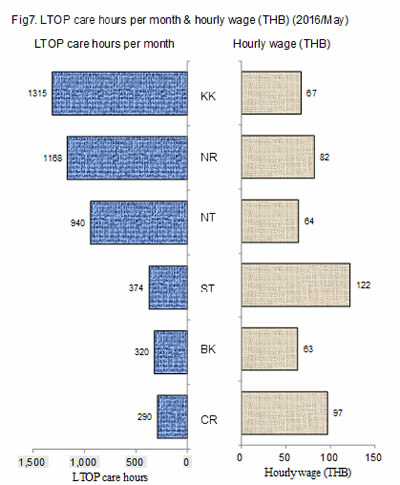
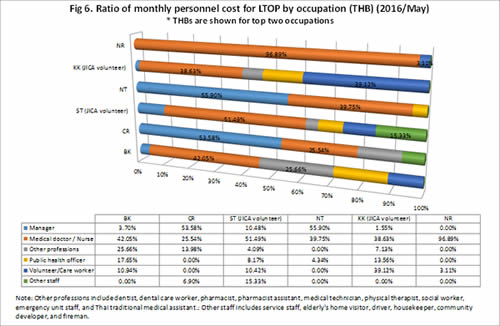 Enlarge (PDF/270KB)
Enlarge (PDF/270KB)
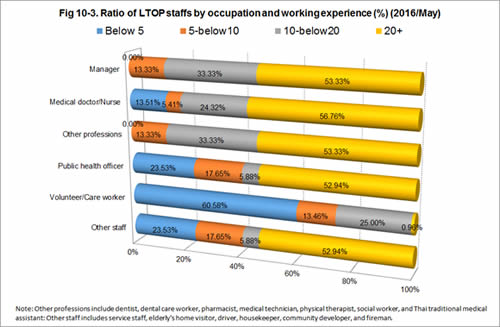 Enlarge (PDF/355KB)
Enlarge (PDF/355KB)
The results are as below;
1) Most of LTOP Personnel Cost is spent for Professional Staffs (Medical Doctor, Nurse, Management Staff, and others) except for Khon Kaen site.
2) Regardless of occupation, LTOP Site Staffs are more likely to be under 50 years old, except for Volunteer/Care Worker who tend to be 50 years and older (77.89%).
3) Regardless of occupation, LTOP Site Staffs tend to have working experience longer than 20 years, but Volunteer/Care Worker are more likely to have shorter experience less than 5 years.
4) According to regression results, gender, working experience and age would be positively correlated to average hourly wage for LTOP Site Staffs.
2. Family Care Giver's Opportunity Cost
Family Care Giver is taking the greatest role for Elderly Care in Thailand now. LTOP and MOPH researched the Family Care Giver's *Opportunity Cost and Prof. Noguchi analyzed data of questionnaires.
*Opportunity Cost: An opportunity cost refers to a benefit that a person could have received, but gave up, to take another course of action.
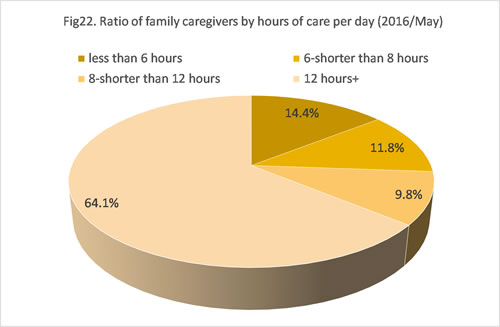
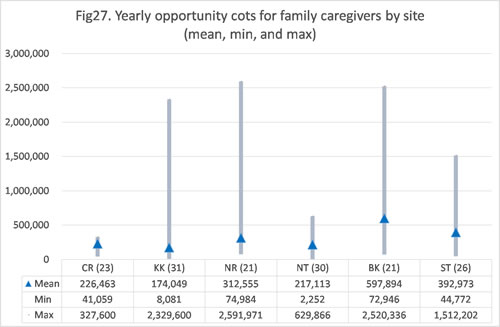
Opportunity Cost is estimated by Hourly Wage x Total Hours of Care per Year. And for those who could not answer their hourly wage to be expected because they had never worked in the labor market, we impute minimum working wage in Thailand (300THB/day).
The results are as below;
1) Opportunity Cost tend to be higher in Bangkok and Suratthani sites, at which income levels are relatively high.
2) Log value of opportunity cost seems to be positively correlated with educational achievement.
Prof. Noguchi continues analyzing the correlation among Cost, ADL(Activities of Daily Living) and Record of Model Service (care hours, care item and others) by 6 Sites. And the result will be the most important evidence for Policy Recommendation of Elderly Care in Thailand.
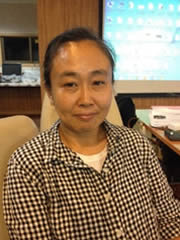
Comments from Prof. Noguchi
"I hope that the current cost analysis will be a benchmark of Long Term Care System in Thailand."
- About JICA
- News & Features
- Countries & Regions
- Our Work
- Thematic Issues
- Types of Assistance
- Partnerships with Other Development Partners
- Climate Change / Environmental and Social Considerations
- Evaluations
- Compliance and Anti-corruption
- Science and Technology Cooperation on Global Issues
- Research
- JICA Development Studies Program / JICA Chair
- Support for the Acceptance of Foreign HRs / Multicultural and Inclusive Community
- Publications
- Investor Relations
